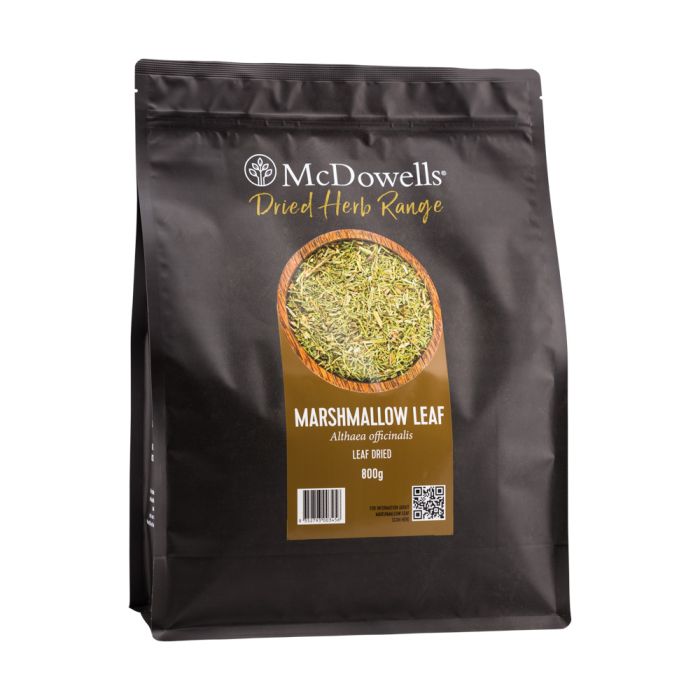
Marshmallow Leaf
Product Information
Description
Botanical name: Althaea officinalis
Since ancient Egypt, marshmallows, whose botanical name comes from the Greek word altho, which means "to heal," have been consumed.
In case you were wondering, Althaea officinalis roots were originally used to make marshmallow confections.
The roots of the mallow plant yielded sap, which the Egyptians used with honey and nuts. The current marshmallow dessert was invented in the 1880s when confectioners substituted gelatin for mallow root.
As a medicinal plant, marshmallow is used to treat illnesses including ulcers, colitis, and enteritis because it is protective and therapeutic for inflammatory, damaged gut walls. The mucilage found all over the plant is what gives it its therapeutic properties.
Marshmallow is a common medical herb used to treat sore throats, painful and swollen mucous membranes lining the respiratory tract, and persistent dry coughs after the primary infection is gone. It functions by assisting in the formation of a barrier or protective layer on the membranes and has ingredients that may lessen coughing as well as aid in the healing of any sores. The marshmallow is also said to help with external inflammation, bruises, aches, sprains, swelling of the hands and feet, chapped skin, and insect bites. It also helps with stomach lining irritation, heartburn, diarrhoea, ulcers, UTIs, kidney stones, and other urinary tract issues.
